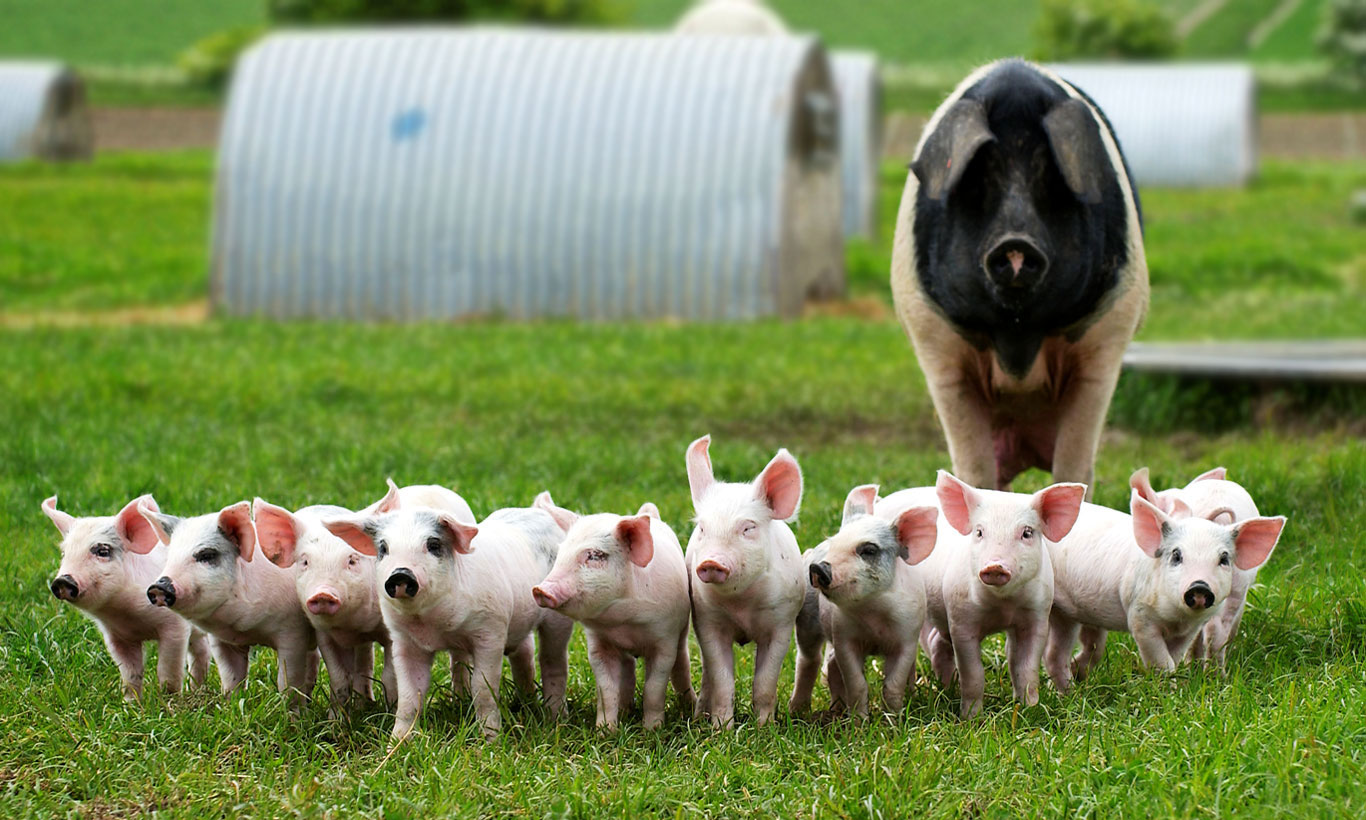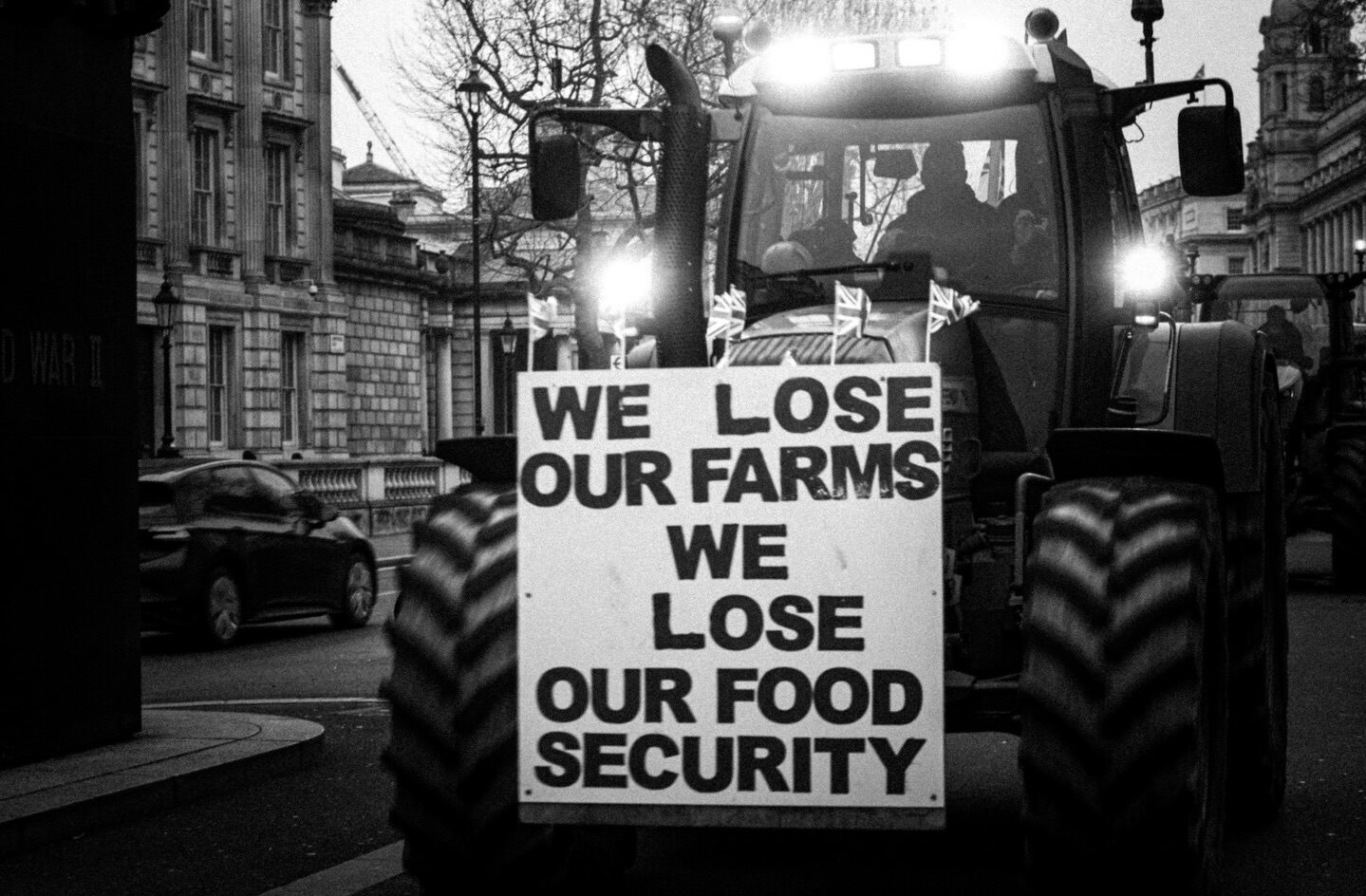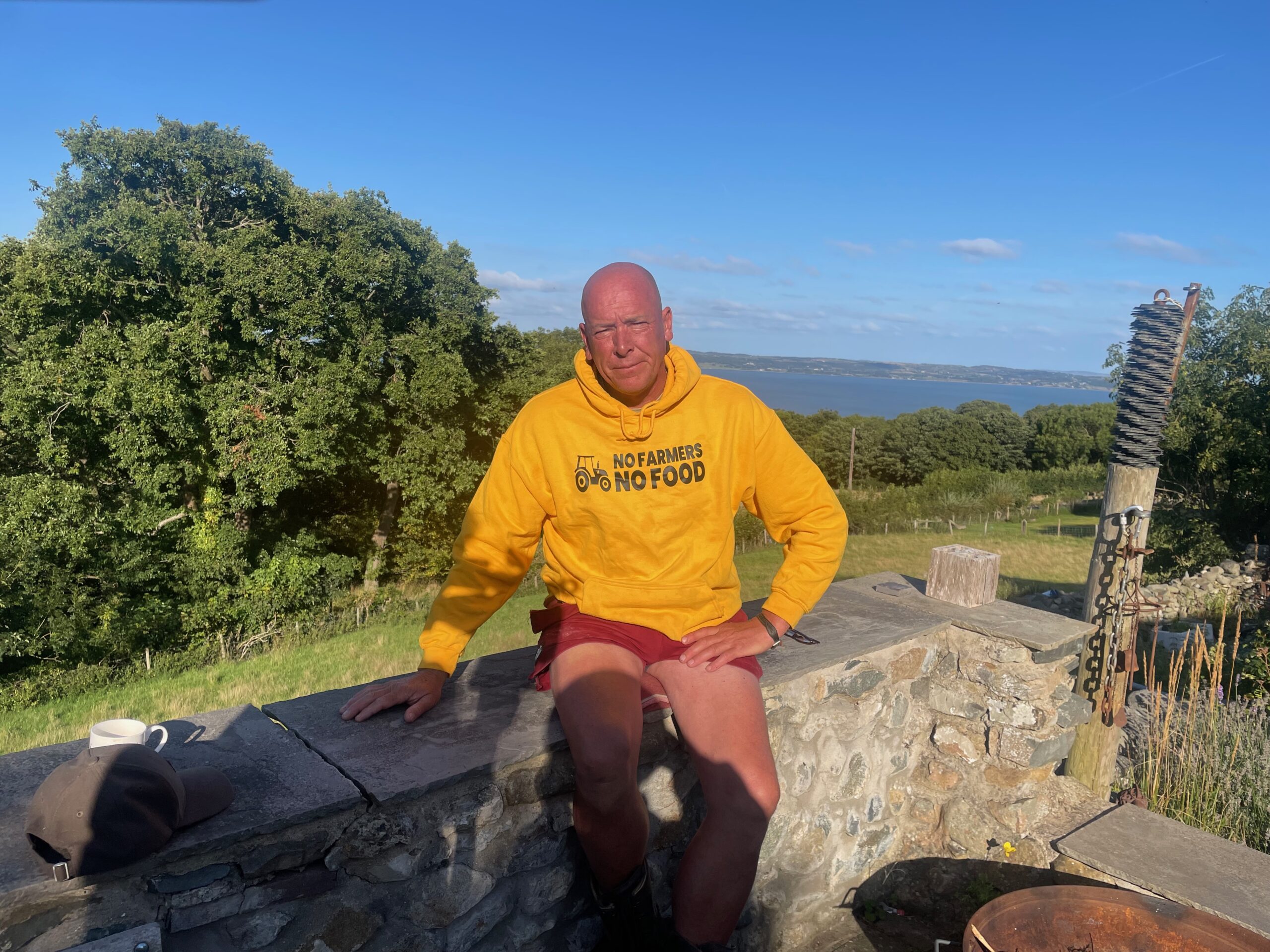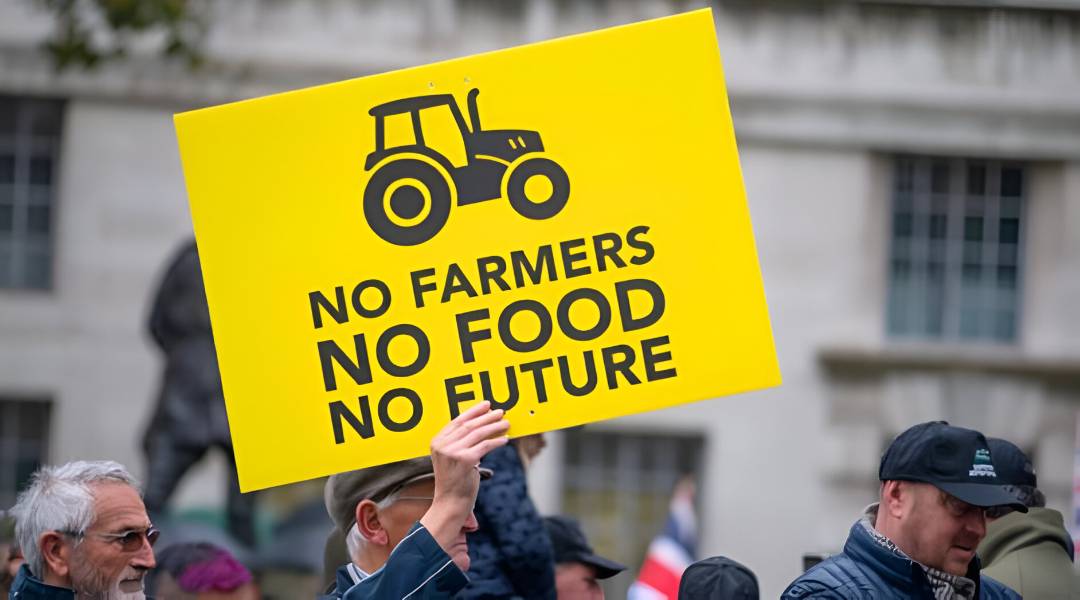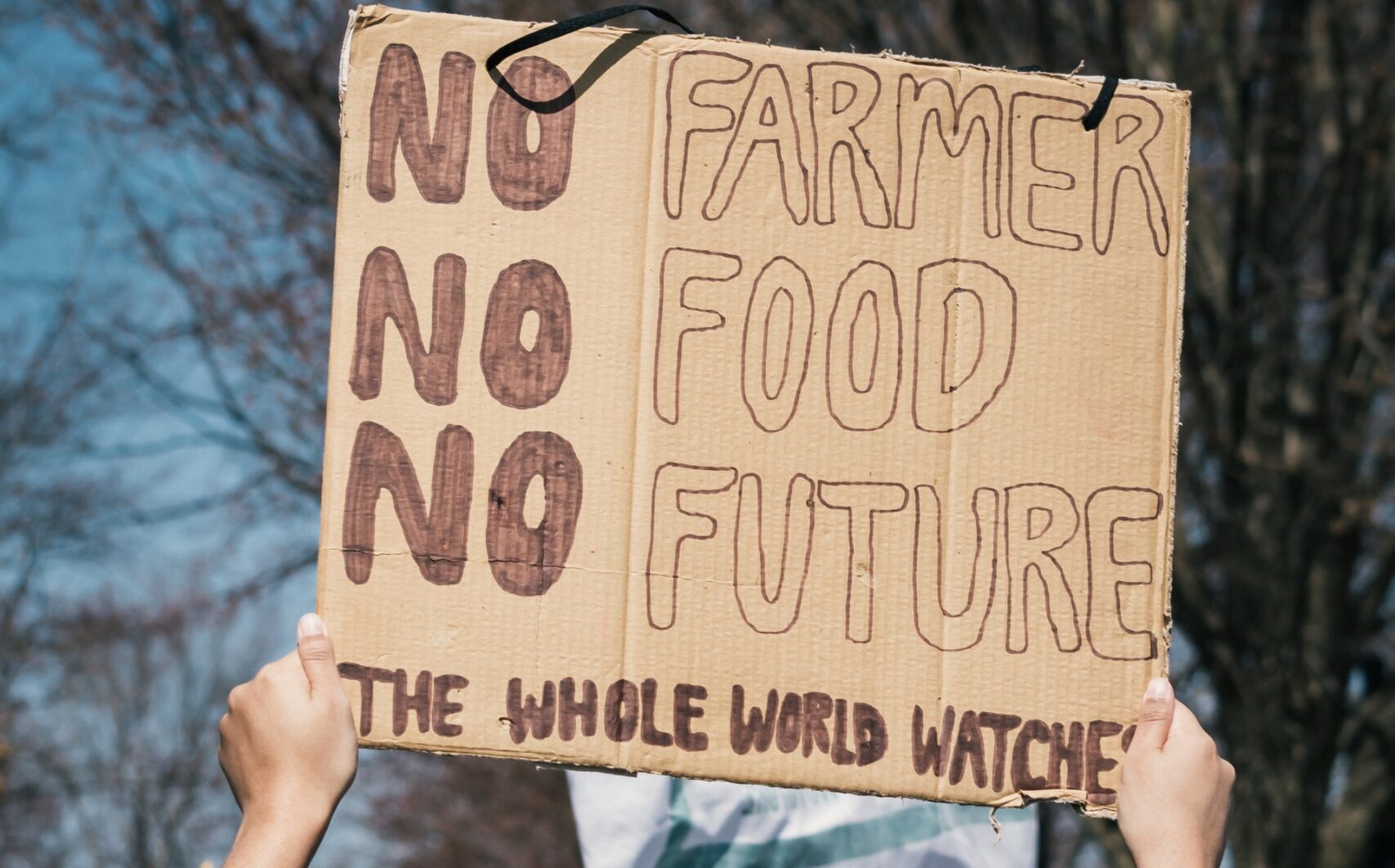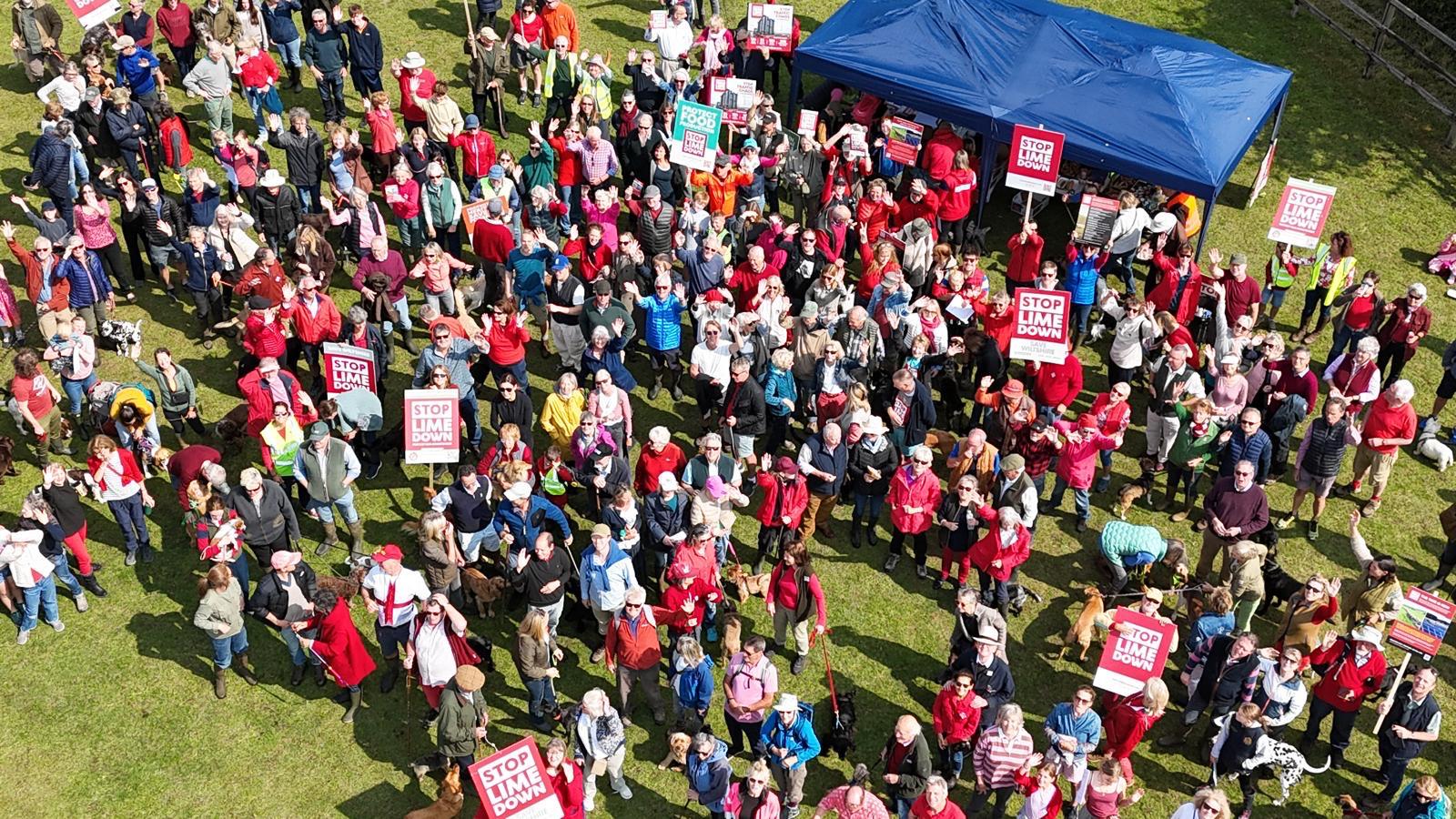The recent Intergovernmental Panel on Climate Change (IPCC) Report profoundly sounds the alarm for change. Moving from a centralised intensive farming system to a localised small scale organic farming system, should be a key part of this change to avoid major disruptions in the immediate and ensure the planet can sustain future generations.
‘The comprehensive assessment of climate science published on Monday, the sixth such report from the IPCC since 1988, has been eight years in the making, marshalling the work of hundreds of experts and peer-review studies. It represents the world’s full knowledge to date of the physical basis of climate change, and found that human activity was “unequivocally” the cause of rapid changes to the climate, including sea level rises, melting polar ice and glaciers, heatwaves, floods and droughts.
World leaders said the stark findings must force new policy measures as a matter of urgency, to shift the global economy to a low-carbon footing. Governments from 197 countries will meet this November in Glasgow for vital UN climate talks, called Cop26’.
In relation to Agriculture, Sustain, the Alliance for better food and farming, reminds us of the urgency to reduce our dependence on fossil fuels and intensive livestock agriculture. To shift the global economy to low carbon, authorities want to continue following the corporate narrative of high tech, centralised industrialised farming and fake meat. Meat, made with GM crops or animal cells are both highly processed systems that might yield profits for CEO, shareholders and pension funds but economic drivers have so far failed to provide healthy diets! Far better that meat is produced by independent ‘real’ farmers with high animal welfare standards and, as explained by The Sustainable Food Trust, we need to stop importing meat from across the world and eat our own pasture fed animals.
‘It is very important to prevent any further global increase in ruminant numbers, due to their methane emissions. We should therefore avoid importing beef from additional countries, especially since the average carbon footprint of beef globally is more than double that of beef produced in the UK. We must also greatly reduce the use of nitrogen fertiliser, which is a major source of nitrous oxide emissions. As such, we should scale back the use of grain and soya in livestock production and use the grazing animals we have to help us both mitigate and adapt to climate change by increasing soil organic matter and therefore transferring carbon from the atmosphere to the soil, which will make agriculture more resilient to climate extremes. This will also improve soil biodiversity and, through this, rebuild the invertebrate food chains that are essential for farmland biodiversity more generally.’
This short Local Futures video spells out the difference between the global food system and industrialized agriculture versus the many benefits of local food systems and small farms. How absurd is it that the UK exports 270 million litres of milk every day and imports 170 million litres!
News round-up
♻️ Regenerative farming shift could reduce UK climate emissions, say experts, and organic farming methods, which use fewer pesticides and store more carbon in soil, are becoming more popular.
‘Under new subsidy plans announced by George Eustice’s department, farmers will be offered up to £70 per hectare to take up regenerative techniques, including mixed farming systems where crops are cultivated alongside livestock to help boost soil health.’
?It’s a Win-Win – regenerative beef system rivals conventional grazing not only on sustainability but productivity too
‘…..grazing small areas with a high density of livestock for a short period of time, followed by long rest periods – can help capture carbon and boost nitrogen soil retention.’
“With the beef industry under increasing pressure to move towards more sustainable production systems that support environmental goals, I’m hopeful that this growing evidence base will help scale up regenerative techniques across the sector.”
?? ? UK not a sheep – ‘We should be leaders not followers’ says Dragon’s Den Deborah Meaden as she launched a new parliamentary petition calling for an end to the cage age for all farmed animals.
Every year across the UK, millions of farmed animals are kept in cages, unable to express their natural behaviours and experiencing huge suffering. These inhumane systems cannot be the future of British farming. The UK Government must legislate to ‘End the Cage Age’ for all farmed animals.
✍️ This Petition urges the Government to follow the example of France by banning all use of synthetic pesticides in public spaces in 2017, and garden use from 2019. The campaign has been backed by the RSPB, Parkinson’s UK, and the Soil Association.
Many cities and local governments around the world have taken action on pesticides and herbicides to protect insects. In Canada, 170 cities and towns are pesticide-free, while in Bavaria drastic changes in farming practices were passed into law after 1.75 million people signed a petition to protect plant and animal species.
World
? ? Mexico – Some 500 residents from the Mayan town of Homún, Yucatán, traveled to protest in the state capital Mérida, fearing that a 49,000-head hog farm in the town’s vicinity will be reopened. Producción Alimentaria Porcícola (Papo) was built in a Natural Protected Area that attracts tourists for its “ring of cenotes.” Residents have expressed concern that water in the area could become contaminated by pig urine and excrement; a potential disaster for 80% of the population which depends economically on tourism.
“substantial scientific evidence about the grave and irreversible harm to human health and the environment associated with industrial hog operations … contamination of water, including naturally occurring freshwater wells known as cenotes; emission of noxious air pollution; the spread of dangerous pathogens and contribution to climate change.”
? Hybrid Rye helping farmers fight ‘Superweeds’ without herbicide; ‘farms have found a sustainable solution to giant ragweed destroying crops across the Corn Belt.’
? Australia/New Zealand safety concerns raised over Impossible Burger GMO fake meat ingredients.
Referring to an analysis written for GMOScience by GMWatch editor Claire Robinson and Dr Michael Antoniou, FoE and GeneEthics also point out that the short (28-day) rat feeding study that Impossible Foods commissioned on SLH showed worrying effects in the rats, including signs of inflammation or kidney disease and possible signs of anemia.
The European Food Safety Authority (EFSA) is currently reviewing a 2019 application from Impossible Foods for EU approval of GM yeast-derived SLH. If EFSA lends its support to this approval, Impossible Foods’ GMO fake meat burger could be sold in the EU. GMWatch will, of course, oppose this move.
? Smithfield Foods has proposed plans for a concentrated animal feeding operation (CAFO) in Burnett County, Wisconsin, which would house 26,000 hogs and produce millions of gallons of liquid manure every year. Residents fear the irreparable damage a facility of that size could do to their air, land, and waterways, as well as to their property values and the local economy, and many fear there’s nothing they can do to stop it. Smithfield was the subject of our 2009 Channel 4 Documentary ‘Pig Business’.
Please donate
Forgive me for pointing out that, while we receive some one-off donations, I am funding Farms Not Factories myself, and if we are to continue to fight the cruel, antibiotic-led factory farm system, we will need some regular donations from like-minded people. Please consider a monthly subscription of £2/month and help us support a network of smaller scale, humane and healthy UK pig farms, local abattoirs and butchers.
“Our message is simple, we want to help bring an end to this dangerous, inhumane system. Vote for real farming over factory farming.”
– Tracy Worcester, Director
Contents
Share This Article
Related ArticlesView All
Protect UK Farmers from Low Standard Imports
The purpose of our newsletter is to give you important information that is censored in the mainstream media. “The way… Read More
Protectionism vs So-Called Free Trade
The purpose of our newsletter is to give you important information that is censored in the mainstream media. “The way… Read More
Find A Farmer
The purpose of our newsletter is to give you important information that is censored in the mainstream media. “The way… Read More
Zionist Money Rules
The purpose of our newsletter is to give you important information that is censored in the mainstream media. “The way… Read More
The Price of Progress
The purpose of my newsletter is to give you important information that is censored in the mainstream media. “The way… Read More
Silencing Dissent Through Fear
The purpose of my newsletter is to give you important information that is censored in the mainstream media. If you… Read More
